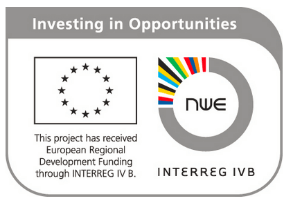
Creating smart ecosystems
Watertruck
With Watertruck we wanted to further develop the freight transport on small waterways and optimize it with the introduction of a new navigation concept consisting of a push tug and fitted pushed barges. As a result, an efficient and flexible road transport model is applied to inland navigation
Problem
Watertruck tackles the biggest threats for the traditional inland navigation:
- Small inland vessels are rapidly disappearing from the transport market
- There is a lack of workforce.
- Young bargemen prefer larger vessels.
- New shippers’ markets can’t be opened up by traditional shipping.
- The urban modal split requires innovative solutions that lead to lower global transport costs.
- The use of small waterways needs a helping hand to be able to compete with the very competitively priced road transport but also tackles the following issues.
- The modal split objectives are far from being reached.
- Congested roads.
- Financing issues for smaller vessels.
Solution
A new, flexible concept for freight transport, based on push tugs and pushed barges: smaller vessels on small waterways; and on larger waterways a combination of pushed units (convoys) that are taken to their destination by a push tug.
Project Development
- An analysis of the market of small inland barges in France, Belgium and the Netherlands.
- Research on operational challenges and opportunities.
- Industrial trial runs in Belgium, the Netherlands and France.
- Information about the advantages of Watertruck to all parties involved.
Advantages
To attract staff:
- Introduction of a shift work system.
- Creation of an attractive job on the water in combination with a sedentary life on land.
For the industry and shippers:
- Better equipped inland waterways transport.
- Optimized organization for the supply chain leading to lower global transport costs.
- New niche markets for shippers (ex. waste collection, recycled material).
- Evolution towards sustainable freight transport.
For society in general:
- Small waterways retain and improve their vital role for freight transport.
- Better mobility guarantees thanks to less congested roads.
- Realization of the desired modal split objectives for freight transport.
- A more sustainable view on urban logistics.
- More safety for personnel in the transport sector.
Result
At the end of the project, lead partner Smart Mobility, together with Vlaamse Waterweg and the Flemish Government, entered a new project request with the European authorities to transform the concept into a practical application. This resulted in the follow-up project
This project had the financial support of Interreg IVB-VWE

Register for our newsletter
Receive updates on your chosen topic and stay informed.

